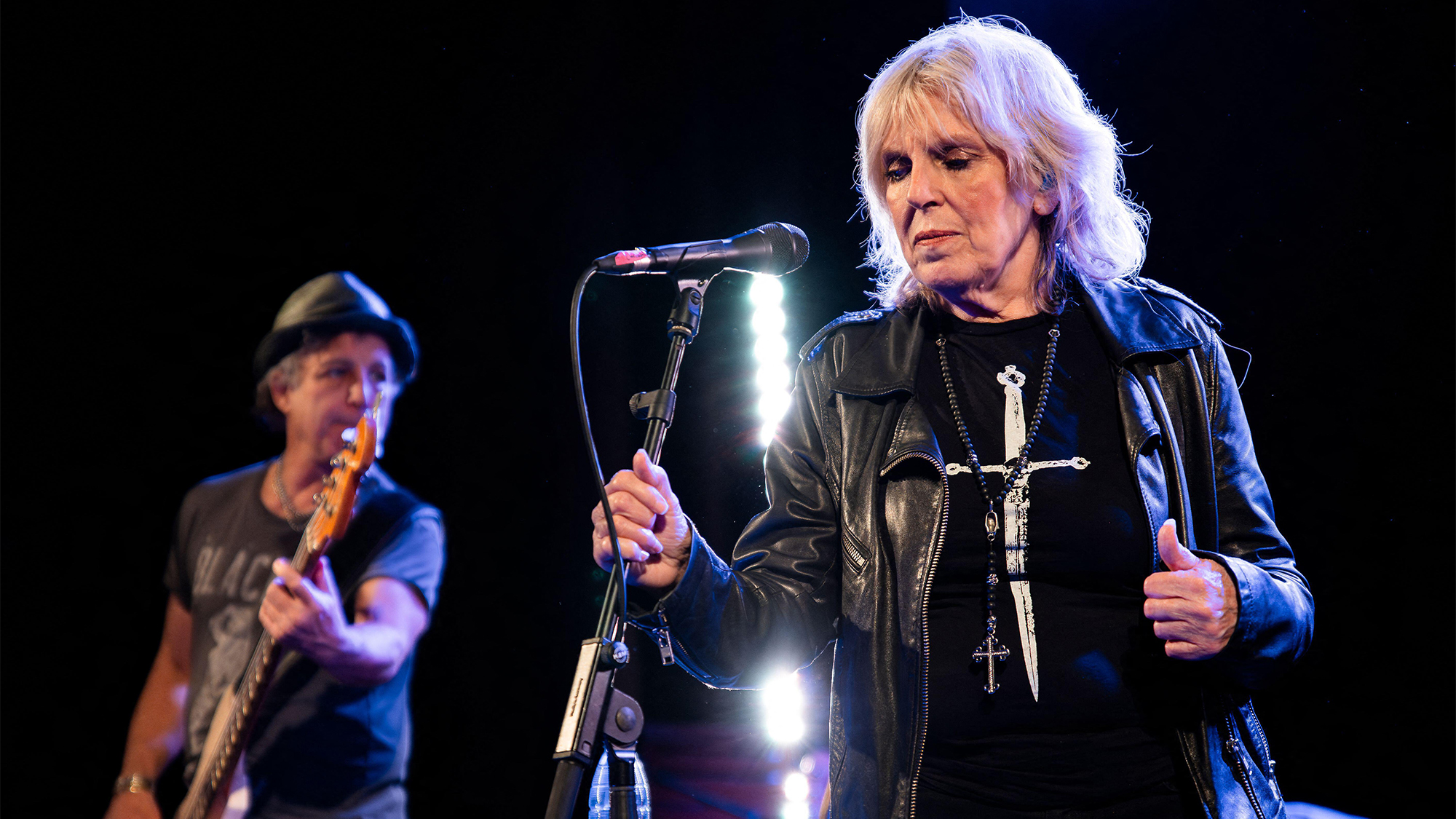“It’s like that George Harrison quote: ‘I come out of my meditation and realize, Oh, sh## — I gotta play!’” Ben Harper on his high-intensity gig-day routine, from pulling in on the bus to stepping off stage
Sounchecks, warm-ups and going to bed at 5am: How Ben Harper survives touring
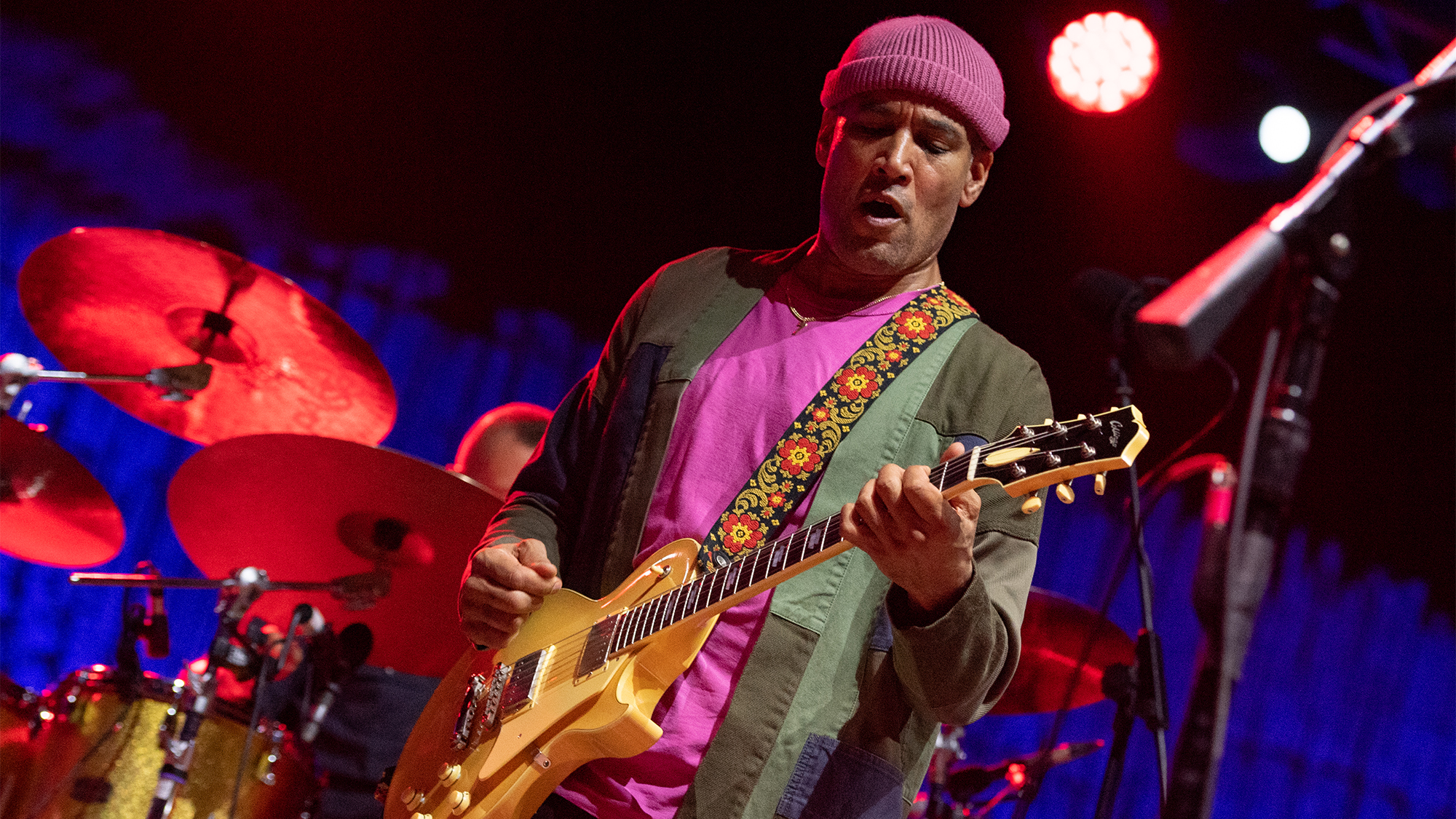
All the latest guitar news, interviews, lessons, reviews, deals and more, direct to your inbox!
You are now subscribed
Your newsletter sign-up was successful
Ben Harper has a knack for remaining focused on whatever is ruling his world at a particular time and place, even as those conditions are in a constant state of flux. There’s been a major change on the home front as the longtime Southern California stalwart — his grandparents founded the famed Folk Music Center in Claremont — recently relocated to France, and from there he’s resumed touring the globe with his renowned band, the Innocent Criminals.
We caught up with the globe-trotting singer/songwriter on the phone in-between Canadian and European jaunts smack dab in the middle of the night Pacific Standard Time to find out how he plays a typical gig day.
Where shall we start?
Well, in a way, my show day starts by going to bed, as I often end up not being able to sleep after a show. Oftentimes the show is 9 p.m. to 11 p.m. — sometimes 10 to midnight — and it takes me at least three plus hours to decompress. I end up being awake ’till usually at least 3 a.m. and probably around 4 or 5. That’s kind of like my morning, and it’s a whole process that starts the moment we step offstage.
What happens then?
We often go over the show as a band, and drummer Oliver Charles is the bandleader at the center of that dialogue. We touch on what went right and where there’s room for improvement, and that often happens while eating. Next we quickly meet with friends and family, and then it’s either on the bus and off to the next city, or to the hotel room.
What’s your food strategy?
All the latest guitar news, interviews, lessons, reviews, deals and more, direct to your inbox!
I need to eat something light after the show because I’m ravenous from not allowing myself to eat anything past 3 p.m. on a gig day. That way it’s had time to turn into fuel for the show, but I don’t want anything that will stay in my body any longer than necessary to do the job. I generally eat fish, vegetables and rice.
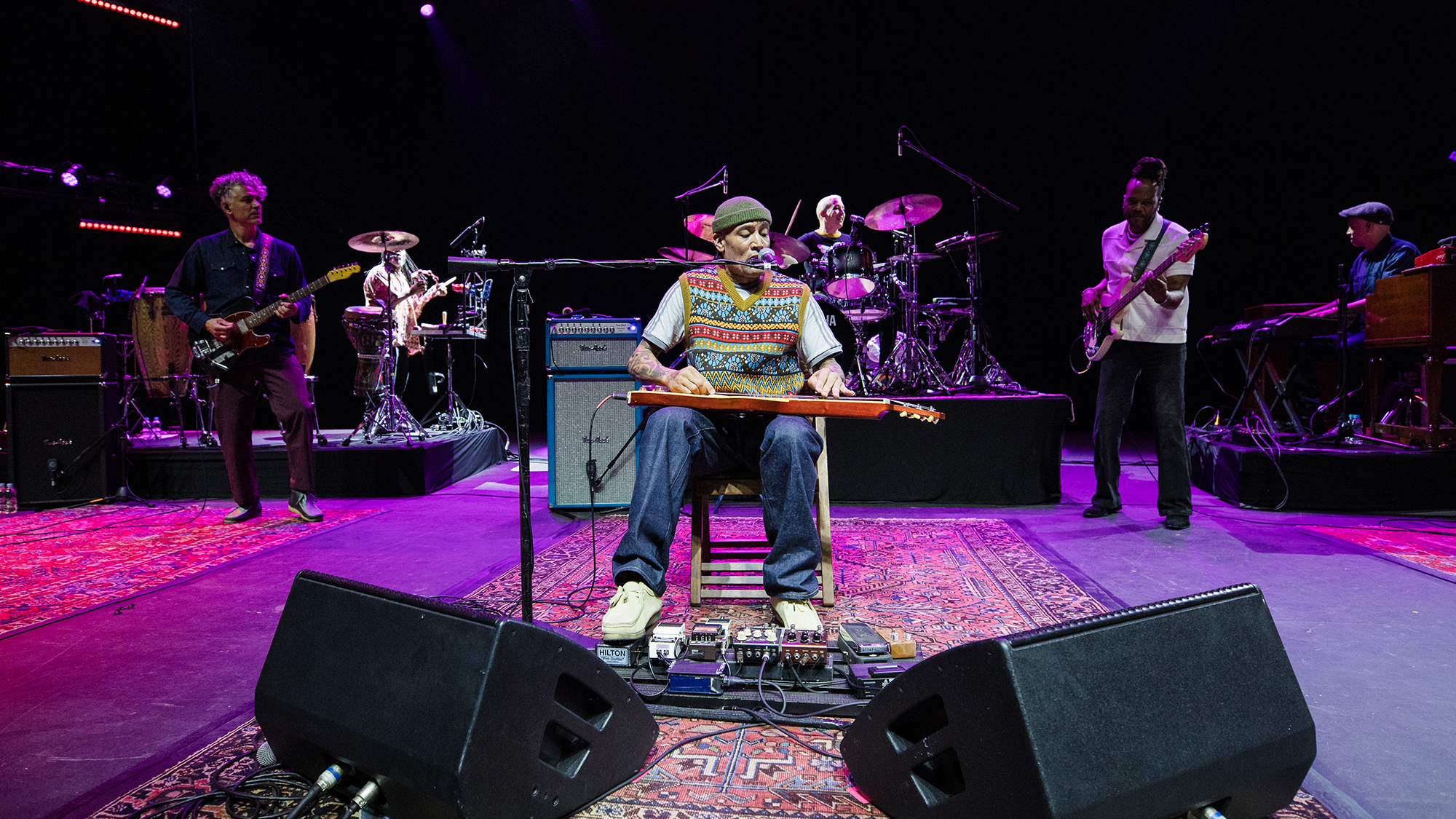
So you need a light bite after the show to satiate your stomach, and regardless of where you wind up, the gig is still rolling around in your head?
Yeah, the gig is going to be in my head while the heightened endorphins and adrenaline remain in the body and bloodstream. At that point, you’ve got a couple of choices: Get into a documentary movie, maybe a book, or put the guitar back in your hands.
Do you wind up playing something from the show?
It usually starts there by touching on a couple of parts that I remember needing to execute better with my hands, and then it quickly morphs into composing or maybe doing a cover, just playing the instrument in an intimate setting to reconnect with it in that landscape.
Once my mind starts to relax and wander I’m on my way to being able to call it a night, but not without the ever-critical post-show shower, either at the venue or the hotel. Nothing about that show is washing off until that shower.
It takes me at least three plus hours to decompress. I end up being awake ’till usually at least 3 a.m. and probably around 4 or 5.”
— Ben Harper
How much sleep do you try to schedule?
There are no absolutes, but I try for seven hours. I take the hotel schedule into account. If there are, say, four shows a week, I’m going to see the sun come up after one of them, so if breakfast starts around 6 a.m., I’ll be in the breakfast room before bed. If the hotel schedule doesn’t work out with my sleep schedule, there’s always a local greasy spoon.
After sleep and breakfast, what’s next?
Shower again to get me up and alive, and then it’s time to play guitar for about an hour. This time it’s different. After a show, it’s recreational playing wherever my hands fall. But that next day, I get down to business working on something set related. I rehearse ways to infuse the set with new songs or deep catalog cuts to keep it fresh for the people that come to multiple shows.
Afterward, I’ll take time to return texts and emails for business, family and friends. I’m working hard to learn French, so I’ll spend half an hour working on how to conjugate French verbs. Pretty soon, sound check rolls around.
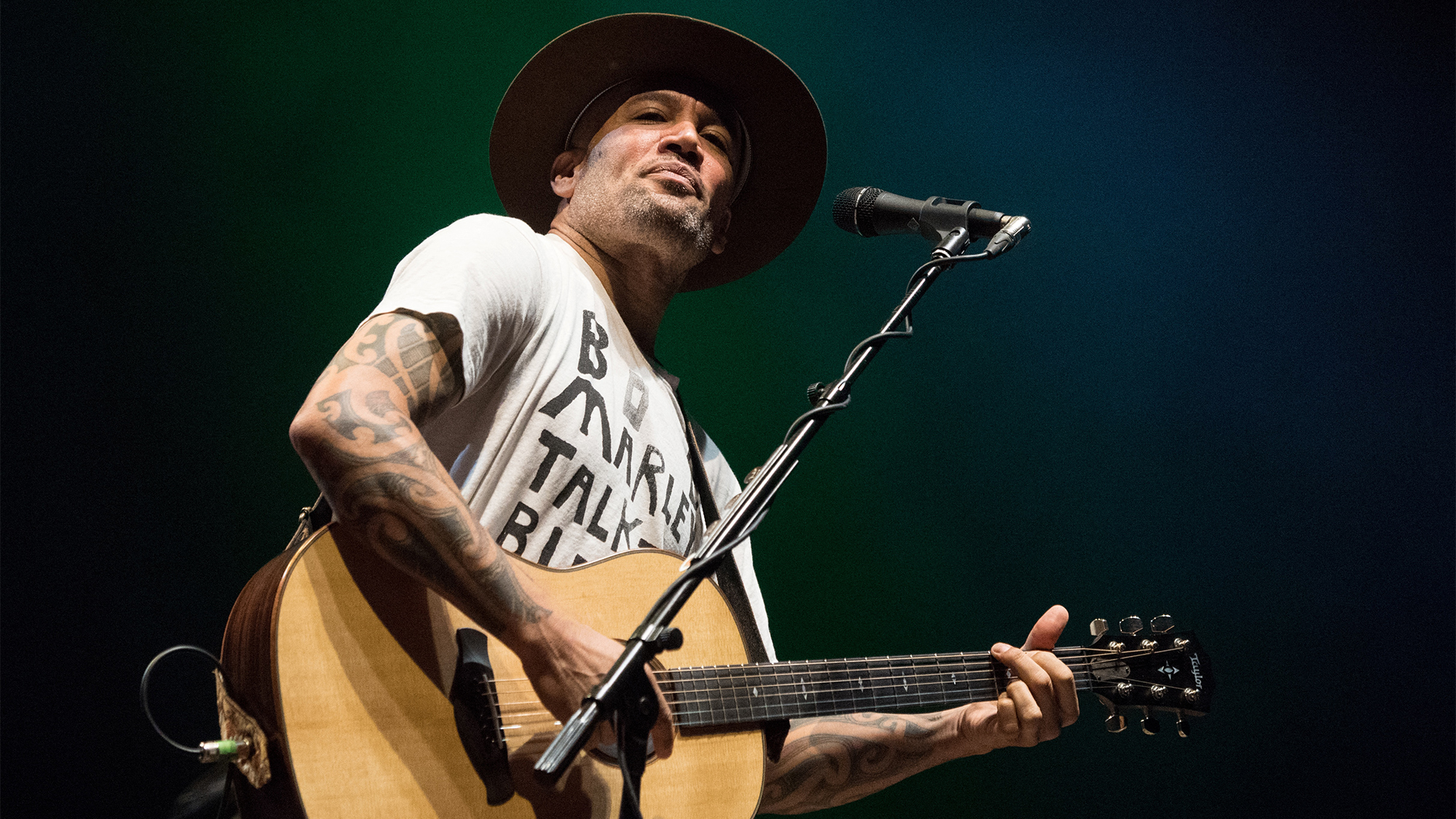
What’s your attitude about that?
Sound check is so important. It’s hard to fault veteran players for blowing it off, but I’m not one of them. The acoustics in the room change every night, and the energy of each new day is completely different. When you consider everything from placement of the gear to working in new material, there are perhaps six or seven very important reasons to still be sound checking. My sound engineer appreciates it greatly.
Now, if it’s a run-and-gun play at a festival where it’s line check only, we can do that, no problem. But given the opportunity, I’ll get up at 10 o’clock in the morning to sound check at a festival if we have a window.
Sound check is so important. The acoustics in the room change every night, and the energy of each new day is completely different.”
— Ben Harper
What’s the most important element from a player perspective?
From a guitar player perspective, it’s the relationship with my vocal and guitar volume. I tend to keep my belt pack volume set right in the middle at about noon or just a hair past noon. For this tour I’m using a custom Two-Rock. I don’t have it set very loud, and I’ve realized over the years that I prefer the sound of a 100-watt amp turned down compared to a 50-watt amp turned up. I do like the pre-amp bumped up rather heftily to enrich the clean tones and saturate the overdrive.
How do you reckon all the different instruments and pickups on instruments ranging from electric lap steel to acoustic steel string?
I found a happy medium with the one Two-Rock amplifier, although it does take a considerable amount of dialing in the volume and tone on each instrument to make it work under the one-amp principle. It boils down to the different pickups and tunings.
I use as many instruments as needed to play what the songs require, and I go through all of them to see which guitars best hold particular tunings, and which pickups—everything from Lollar to Seymour Duncan—deliver the best tone from each instrument in its particular tuning.
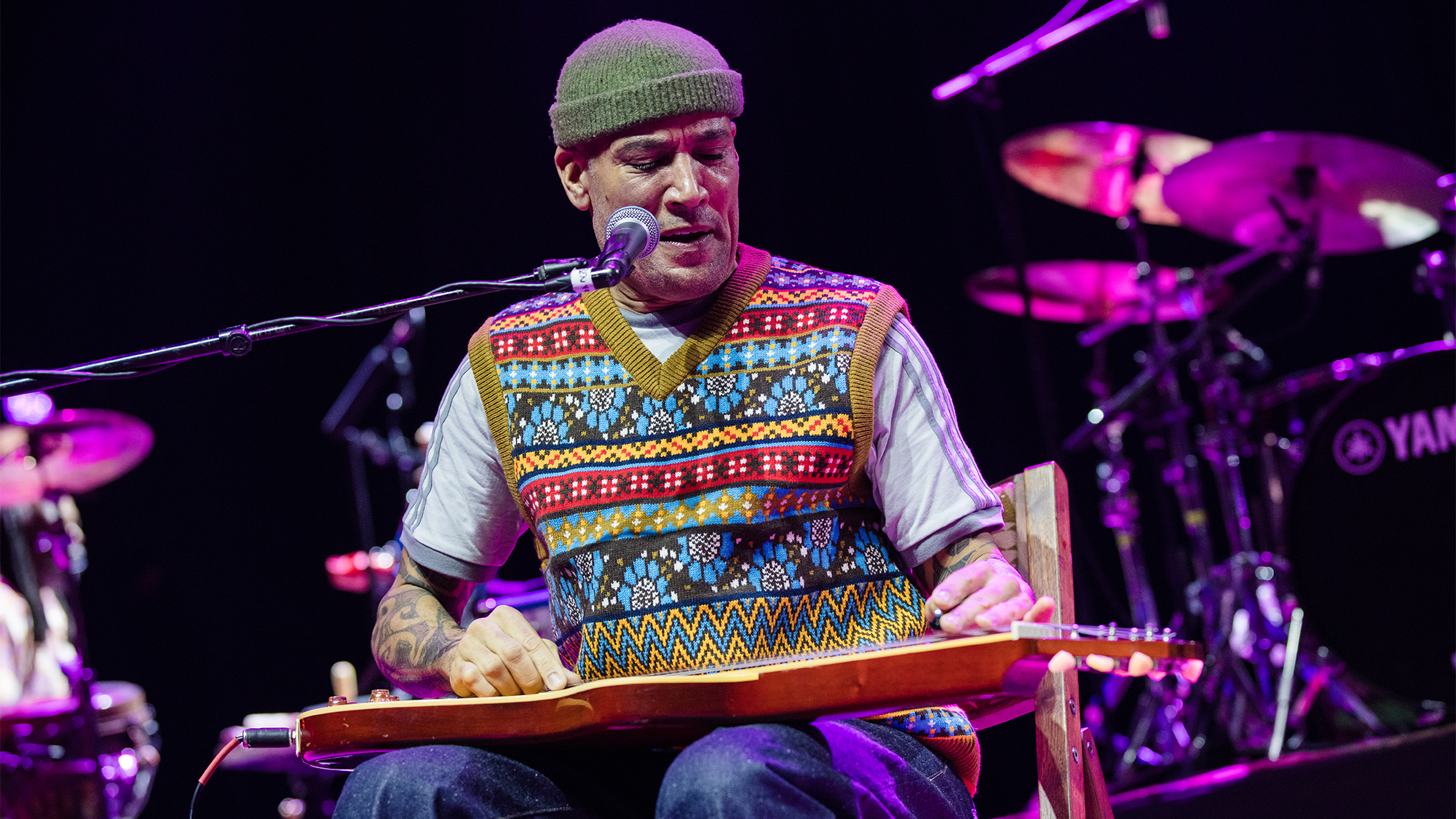
Do your acoustic guitars signals go through the Two-Rock as well?
I’m running my acoustic’s piezo pickup signal right into the amp as well as using a D.I., and it’s the best acoustic guitar tone I’ve ever had. The new Taylor Gold Label Grand Pacific 517e mahogany dreadnought is now my nightly jam, offstage and on. It's singular, unlike anything else in my arsenal, which is saying something. It’s the first acoustic I’ve used onstage with the Innocent Criminals without needing a feedback buster in the sound hole. With the addition of the Gold Label Grand Pacific, I can’t wait to put the acoustic in my hands at every show.
What’s your pre-show ritual?
From the moment I arrive at the venue, I’m there and committed to the show. Right after sound check, Oliver and I start working on crafting the set for that night. Pre-show I’ll go into a mode where every 30 minutes or so I’ll grab a guitar and start warming up my hands. All the band members have access to some sort of instrument and we’re likely to get into a pre-show jam backstage.
Sometimes I’ll listen to music before the show, usually blues guitar players — Freddie King, Blind Willie Johnson, Stevie Ray Vaughan. I love listening to great guitar playing.”
— Ben Harper
We don’t do an official meet and greet, but often there’s some component of seeing friends, family and maybe some ticket winners. I always go onstage completely sober. I’ll warm up my voice with some low or middle-range vocal exercises — nothing too high or strenuous because you don’t want to wear that out. I’ll joke around with the band to get loose.
Do you listen to music?
Sometimes I’ll listen to music before the show, and it’s usually blues guitar players like Freddie King, Blind Willie Johnson and Stevie Ray Vaughan. I love listening to great guitar playing, which for me is like studying literature in that they both infuse ideas. Literature infuses lyrics while guitarists infuse ways to approach the instrument. I listen to people who do things I can’t, so I have something to reach for.
What does it feel like when you walk onstage?
Walking onstage feels like the first time every time. There’s a sort of confident acknowledgement that anything can happen at any moment. There are so many unknowns. Hopefully, you can settle in and simply go on a ride playing music. But it’s a negotiation at times.
I mean, it’s serious business when you’re up there attempting to do 20 songs perfectly, or perhaps perfectly imperfect. A certain amount of nerve calming must take place as show time approaches. And like I said, I still feel like it’s my first time doing it every night.
I suppose that’s why you keep doing it with over three decades experience in the arena?
I guess so. I truly try to get steady and centered, you know? But it’s like that George Harrison quote, “I meditate before a show, and it doesn’t matter if I do it for three hours to find this place of calm. I come out of my meditation and realize, ‘Oh shit, I gotta play!’”
Ben Harper & The Innocent Criminals' North American tour starts 19 August. For info and tickets, visit his website.
Jimmy Leslie is the former editor of Gig magazine and has more than 20 years of experience writing stories and coordinating GP Presents events for Guitar Player including the past decade acting as Frets acoustic editor. He’s worked with myriad guitar greats spanning generations and styles including Carlos Santana, Jack White, Samantha Fish, Leo Kottke, Tommy Emmanuel, Kaki King and Julian Lage. Jimmy has a side hustle serving as soundtrack sensei at the cruising lifestyle publication Latitudes and Attitudes. See Leslie’s many Guitar Player- and Frets-related videos on his YouTube channel, dig his Allman Brothers tribute at allmondbrothers.com, and check out his acoustic/electric modern classic rock artistry at at spirithustler.com. Visit the hub of his many adventures at jimmyleslie.com

